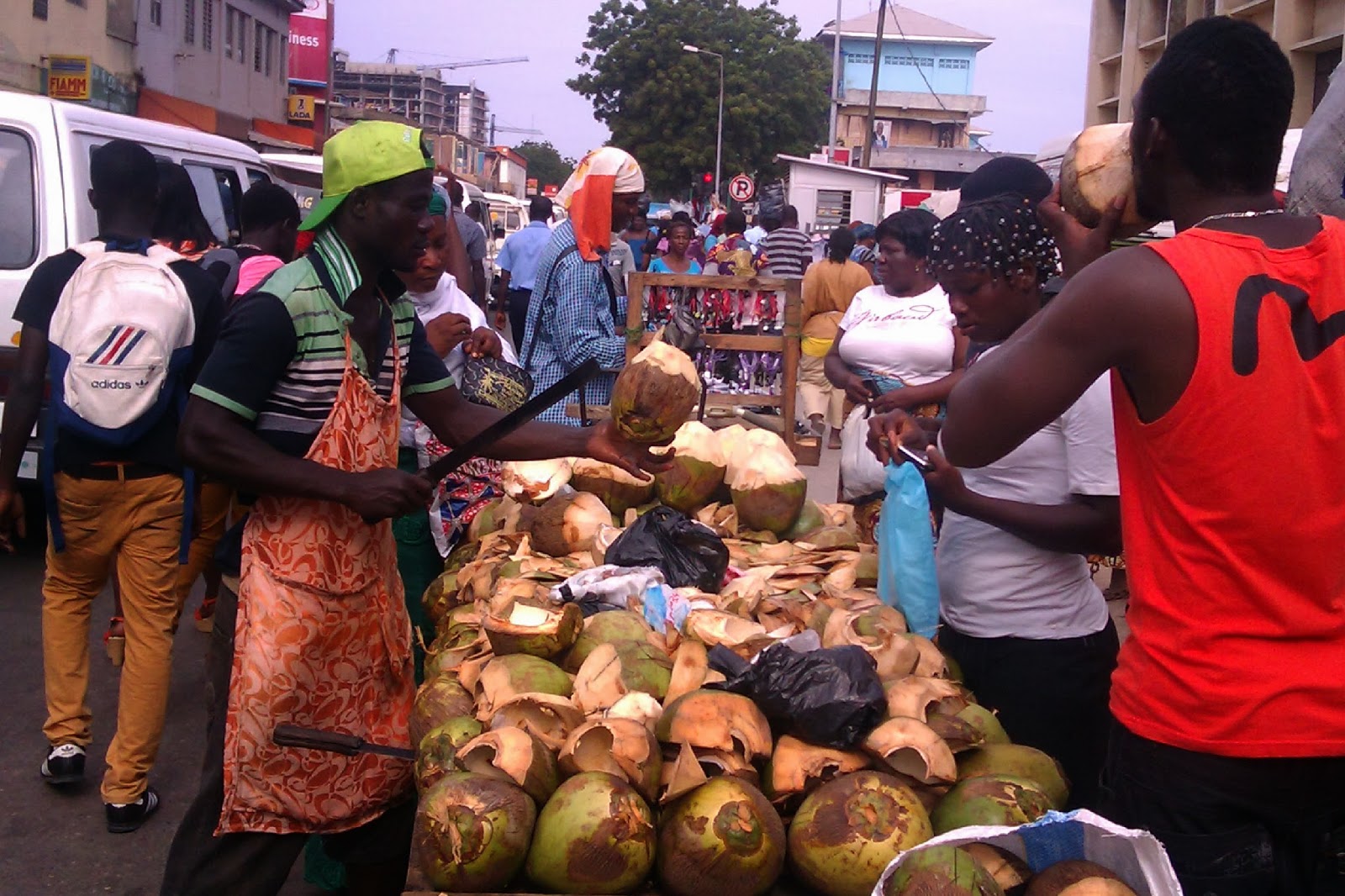Coconut is one underrated plant, but people are now noticing its importance. In Ghana, they call it the “tree of life” because everything about the plant is of benefit to mankind.
Also, research shows that coconuts have lots of minerals in its fruits that boost the health of consumers.
This year, Ghana hosted the first ever international coconut festival which saw many investors and industry players meet in the country’s capital to promote the export and diversification of coconut through a robust Ghanaian coconut industry.
Ghana’s economy has raked in a lot of revenue from coconut over the years which makes it very important to the people.
On the streets of Accra, it is not uncommon to sight a coconut vendor serving fresh coconut fruit to one or two consumers. These vendors usually display the coconuts in a wheelbarrow or some hawk them in pans on the streets.

The coconut water is a quick refreshing water to have on sunny days.
After consuming the water, the vendor then cracks open the hard shell of the fruit and splits it three way to reveal the flesh. This is then scooped with a makeshift scoop out of the exocarp. There are bottled coconut milks or water in shops in Accra.

The nutritional value of coconut water or milk and flesh ranges from it being a good source of fibre to having minerals like iron, selenium, calcium, sodium, magnesium and phosphorous. It also contains vitamins such as vitamin C, E, B3, B5, and B1.
Coconut oil is said to be one of the best in the world, according to researchers. It has healing properties such as the prevention of skin infection, removal of dark circles under eyes, gives the skin a natural and softer feel and it is a good moisturizer for the skin and hair. Not forgetting that it aids in the prevention of dandruff.
Coconut oil is also an integral ingredient in many traditional Ghanaian medicines. When one has diarrhea, it is one of the quickest ways to keep them hydrated.
It also alleviates bronchitis, dysentery, flu, asthma, ulcers, irregular or painful mensuration and kidney stones.

For the ‘Year of Return’ folks, grab one bottle of coconut oil from any local vendor to protect your skin from sunburn and naturally improve your skin tone. Scars, burns and blisters can fade with the continuous application of coconut oil.
The price of coconuts has moved from 50 Ghana pesewas (10 cent) to 2 Ghana cedis and some even sell one fruit for 3 Ghana cedis.
The plant is grown across coastal towns such as Western region’s Cape Three Points, Keta and Glidzi in the Volta region, the Woe-Tegbi-Dzelukope corridor, Ampain; just about 60 km from the Ivorian border and the Efutu Breman and Gomoa West District in Central region, also some at groves along the coastline and inland zones.
Mr Davis Korboe, the Chairman of the Ghana Chapter of the Africa Coconut Group said “coconut could grow effectively everywhere and there is the need for many more Ghanaians to venture into the production of coconut on a large scale to help rake in a lot foreign exchange through its exports.”

The Cape Saint Paul Wilt is the main disease that affects the production of coconuts, according to coconut farmers in Ghana since 1932.
“It results in premature nut dropping and blackening of immature flower heads. Then yellowing or in some instances browning of the crown which dries up and falls off, leaving the ‘telephone pole’ figure.”
However, the government has measures in place to counter the effects of the disease. Coconut lovers can still grab the fruit from any street vendor and enjoy the nourishing fruit and all its added benefits.










